Guides & Tips
Top 10 Tips for Healthy Travel
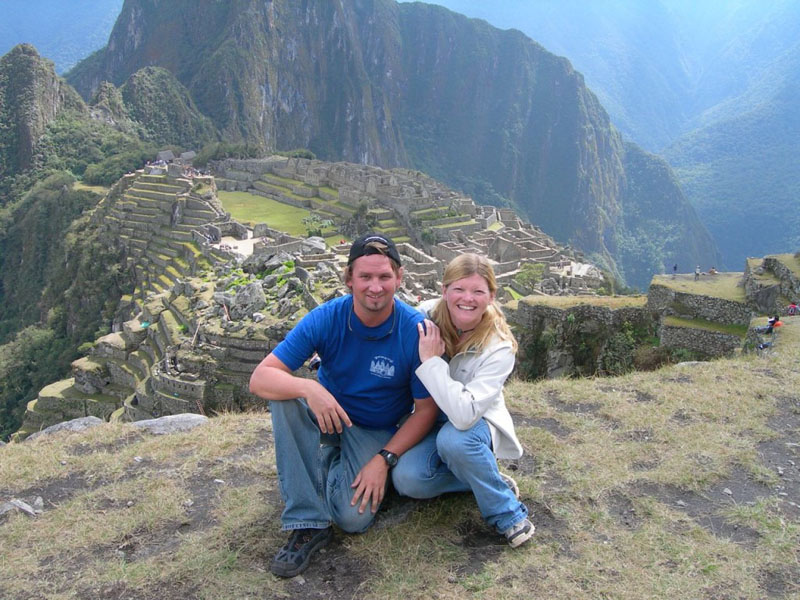
We have had ample time to reflect on our travel health and safety in recent months as Dave recuperates from fracturing two vertebrae on an Amazon Cruise in Peru.
Having visited hospitals on five different continents, we have gained a wealth of knowledge and experience. We believe it is essential to share our healthy travel tips for international travel.
With over a decade of travel under our belts, we have encountered our fair share of illnesses. However, by following these travel tips for staying healthy when abroad, we have managed to minimize emergencies and stay prepared.
Healthy Travel Tips
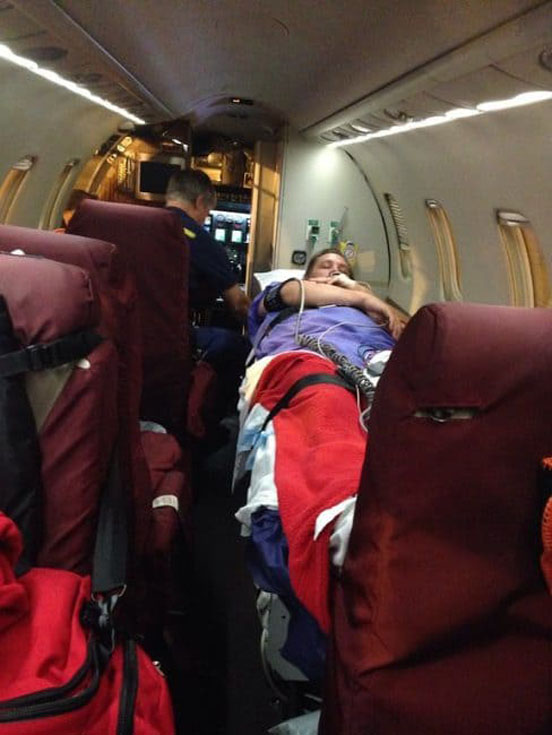
Tips for Healthy Travel when Abroad
Staying healthy while traveling is crucial, but it can also contribute to your overall well-being and happiness.
1. Do your research

Prior to traveling to a foreign country, it is essential to conduct thorough research and understand the potential risks.
Important questions to consider:
What contagious diseases are prevalent through mosquitoes, water, or unsanitary conditions?
What type of climate will you encounter? Is there a risk of heat stroke or sunburn?
Will you be exposed to high elevations, posing a risk of altitude sickness?
Is hypothermia a concern in colder climates?
Are there poisonous animals to be cautious of, and if encountered, how do you protect yourself?
There are numerous factors to consider regarding travel health before embarking on a trip.
You can consult your government’s website for warnings and advisories, visit the tourism board of the destination country, and seek information from blogs or social media platforms for up-to-date updates.
Asking questions to your favorite travel blogger on platforms like Twitter or Facebook often yields helpful responses.
2. Vaccines and medications
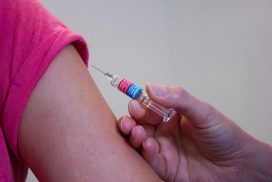
One of the best ways to maintain a healthy travel lifestyle when traveling abroad is to be aware of the vaccines that can protect you from diseases.
Vaccines such as Hepatitis A, Hepatitis B, Typhoid Fever, Yellow Fever, Cholera, and Travellers’ Diarrhea are essential for travel to regions like South America or Asia.
Did you know that there are vaccines available for travelers’ Diarrhea?
3. Watch What You Eat
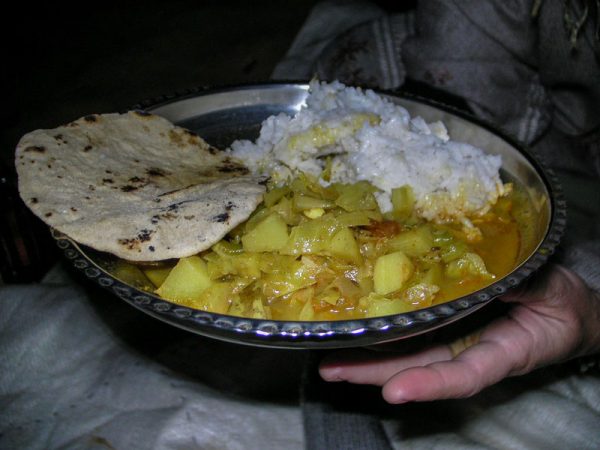
Looking back, I wish we had the vaccine for travelers’ diarrhea when Dave consumed some tainted goat meat in India a few years ago.
It happened after a surreal experience in the desert, where a group of surgeons from Delhi joined us on a camel safari.
As the sun set, the servants brought out plates of food for us to enjoy.
The lone goat that had been lingering near our tent all afternoon had mysteriously disappeared. When we inquired about the kebabs, the server proudly announced, “Goat, freshly prepared!”
The following day, a curry dish was served, and upon asking about its contents, the response was, “Goat.” Dave partook, but I politely declined. That goat had been left outside in the desert overnight.
Predictably, Dave fell severely ill for the next five days.
Fortunately, we had a supply of Ciprofloxacin (provided by a doctor in Canada before our departure), which prevented the need for hospitalization.
4. Visit a medical clinic before traveling
Prior to your trip, a visit to a travel medical clinic allows your doctor to administer necessary injections and prescribe medications for potential emergencies.
Medications for malaria, antibiotics, and medicated creams are crucial to have on hand.
It is advisable to schedule your visit a couple of months in advance, as some vaccines require multiple doses, necessitating multiple appointments.
5. Stock your first aid kit
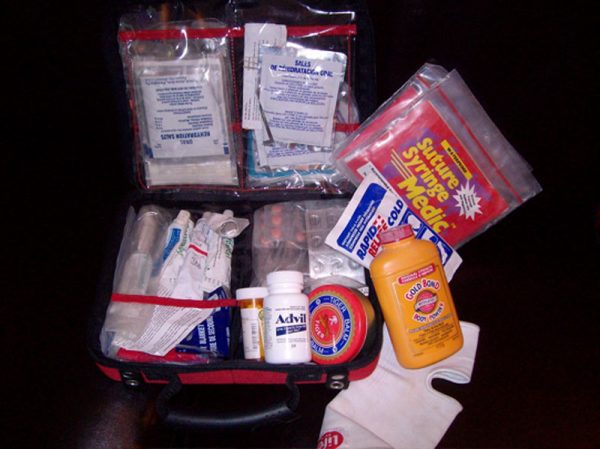
We always carry a first aid kit for general emergencies, which serves as our first line of defense for maintaining a healthy travel lifestyle. When Dave severely sprained his ankle in Ireland last October, ibuprofen and a sturdy tensor bandage proved to be invaluable.
While it’s important to have essential medications, avoid overpacking for every possible scenario. Instead, include staple items like anti-diarrheal medication, antihistamines, anti-motion sickness medication, pain relievers, laxatives, antacids, antibacterial ointment, hand sanitizer, band-aids, aloe gel for sunburns, Moleskin for blisters, and oral rehydration salts for recovery from vomiting or dehydration.
6. Mosquitos and Disease
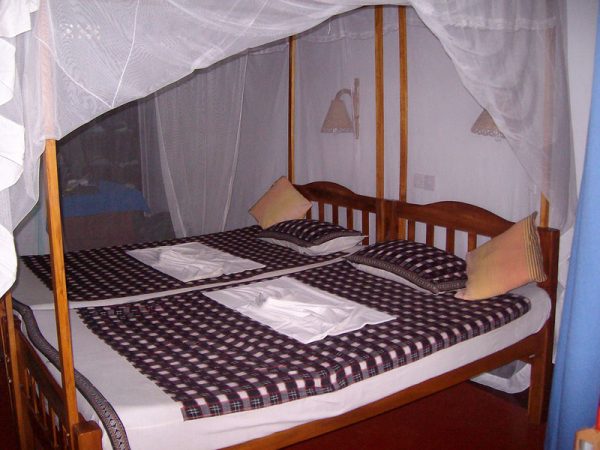
We prioritize avoiding illness and injury on our travels by taking preventive measures. For diseases like Dengue Fever and Malaria, which are transmitted by mosquitoes, covering up is the most effective prevention method.
Even in hot, humid jungles, we opt for lightweight long-sleeved shirts and pants for protection.
While insect repellent may not always be effective, wearing appropriate clothing can make a significant difference.
Carrying a portable mosquito net is also recommended, as many accommodations provide nets with holes. Bringing your own ensures a mosquito-free night.
While using insect repellent is advisable, it should not be solely relied upon. Staying covered up is crucial. In extreme situations, we have used bug jackets with mesh faces for added protection.
7. Heat and Sun
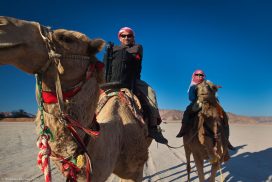
When exposed to intense sunlight, we wear hats and cover up with lightweight clothing. I prefer long shirts and sarongs over frequent sunscreen applications.
It’s important not to spend extended periods in the sun. Many travelers coming from colder climates land in tropical destinations and spend hours outdoors, jeopardizing their health. Seek shade under an umbrella or cover up to prevent sunburn.
Modern fabrics are lightweight and comfortable, making it enjoyable to wear long sleeves in the sun.
8. Water Purification
Staying hydrated is crucial, especially in hot climates where dehydration can go unnoticed. Severe dehydration can lead to heatstroke and pose serious health risks. However, be cautious not to over-hydrate.
During our cycling journey through Sudan, I sweat faster than I could replenish fluids, causing symptoms of dehydration and cramping throughout my body. If you sweat profusely, opt for liquids containing electrolytes like Gatorade.
Use a Steripen to purify water for safe consumption.
9. Keep Hydrated
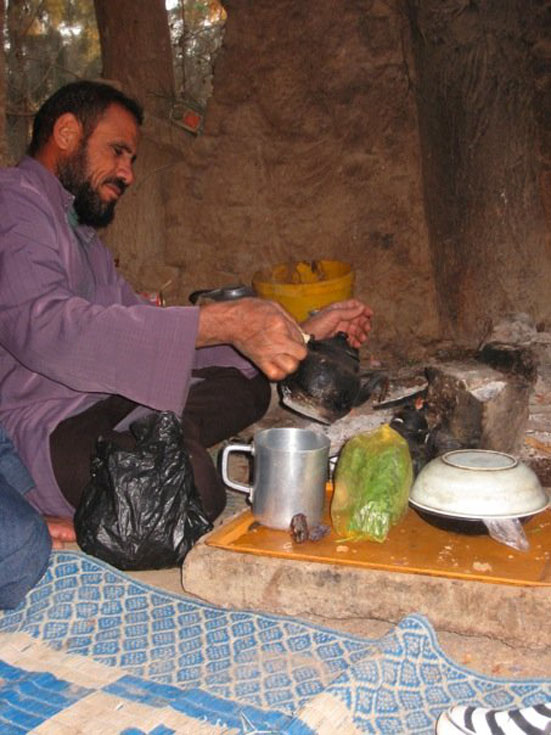
Regarding water consumption, be cautious while traveling. It’s common to request ice in drinks, but refrain unless you are certain of the water source.
Tips to Stay hydrated when traveling
- After Dave fell severely ill in Vietnam due to consuming ice tea, I was concerned he might require hospitalization. He spent five days confined to a bungalow in Mui Né, a picturesque beach town, where we should have been enjoying the sand and surf. Had he opted for hot tea brewed with boiled water, he might have avoided this ordeal.
- Hot beverages are a safer choice. Opt for sealed bottled drinks or canned options. To reduce plastic waste, consider bringing a portable water filtration system. These devices have advanced significantly and can filter water from various sources, promoting environmental consciousness while safeguarding your health.
- Purify your Water. In situations where water filtration or bottled water is unavailable, purification tablets are effective. We used purified water during our cycling expedition from Cairo to Cape Town, as well as on our journey to Everest Base Camp and the summit of Kilimanjaro. These tablets work well, and if you find the taste unpleasant, a dash of powdered juice can enhance the flavor.
10. Food
Food is a critical aspect of travel. While illness and vomiting are sometimes unavoidable, it’s essential to exercise caution when selecting food options.
Dave experienced severe food poisoning after dining at a luxury hotel in Cairo, while I fell ill on a return journey from Peru after consuming a burger at a popular American fast-food chain.
Food-related illnesses can occur anywhere!
Our rule of thumb is: if it’s not boiled, baked, or peeled, don’t eat it.
Salads are tempting in hot climates, but unwashed or improperly washed lettuce can lead to illness. Stick to fruits like bananas, oranges, and mangoes that can be peeled. If opting for street food, ensure it is thoroughly cooked.
Pro Tip: When selecting a dining establishment, choose venues frequented by locals. The high turnover rate ensures fresh food preparation, and the local clientele indicates authenticity and affordability.
11. Jet Lag
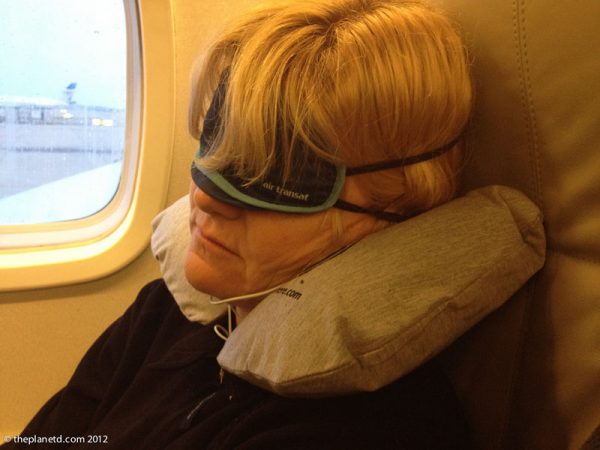
One of the most common questions we receive is how we combat jet lag.
When you have limited time for vacation, feeling exhausted for the first few days can be disheartening. While jet lag cannot be entirely avoided, there are strategies to ease the transition to a new time zone. Here are some tricks we employ when flying.
- Adjust your phone to local time during the flight. This mental shift prepares you for the destination’s time zone before arrival. Attempt to stay awake as long as possible and resist the urge to sleep early. If arriving in the morning, a short nap may be beneficial, but limit it to an hour to avoid disrupting your sleep schedule. Stay awake until a reasonable bedtime.
- Get some fresh air and sunlight by going outside and taking a walk. Exposure to natural light can improve your mood and energy levels.
- Avoid alcohol – While many believe alcohol aids sleep, it can have adverse effects during travel. Instead, opt for hydrating beverages like water or juice. We refrain from consuming alcohol, coffee, tea, or soft drinks on travel days and prioritize staying hydrated. This adjustment has significantly reduced travel-related fatigue for us.
- Rest during the flight. Fortunately, both Dave and I can fall asleep easily on flights. Consider bringing a face mask, neck pillow, earplugs, or noise-canceling headphones to enhance comfort and promote rest. A cozy sweater can also make sleeping more comfortable. Quality rest during the flight can alleviate fatigue upon arrival.
12. Don’t be foolish
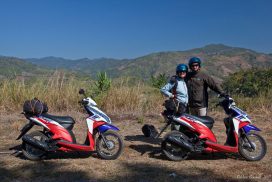
We have witnessed countless tourists engage in risky behavior while traveling. Why do individuals suddenly believe they are invulnerable simply because they are on vacation?
Exercise the same caution abroad as you would at home.
When renting motorcycles or bicycles, wear helmets. Even in hot climates, opt for jeans and a thick, long-sleeved shirt while riding to minimize road rash in case of an accident.
Avoid excessive alcohol consumption and late-night partying, as these behaviors often lead to trouble.
Always wear a seatbelt while driving. Observing a group of tourists joyriding in an open-top jeep without seatbelts serves as a reminder to prioritize safety even in unfamiliar environments.
Adhere to standard safety precautions and maintain a level-headed approach to ensure a safe and enjoyable trip.
13. Altitude
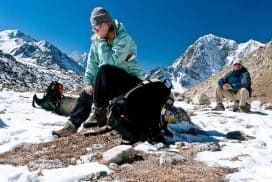
Even if you are not an extreme adventurer, you may find yourself in high-altitude destinations frequently. Locations like Machu Picchu and various ski resorts are situated at high elevations. Upon arrival from sea level, you are likely to experience the effects of altitude.
If you anticipate being at high altitudes, request altitude sickness medication like Diamox from your doctor to alleviate symptoms.
This medication proved invaluable during our ascent of Mount Kilimanjaro and our arrival in Cusco, Peru, prior to visiting Machu Picchu. Acclimatization and gradual adjustment are vital in high-altitude environments.
How to Stay Healthy at Altitude
Avoid overexertion, stay hydrated, and keep warm. We often lose our appetite at high altitudes, but for some reason, we can always eat chocolate. It’s always a handy snack to have
-

 Destination8 months ago
Destination8 months agoSingapore Airlines CEO set to join board of Air India, BA News, BA
-

 Breaking News10 months ago
Breaking News10 months agoCroatia to reintroduce compulsory military draft as regional tensions soar
-

 Gadgets3 months ago
Gadgets3 months agoSupernatural Season 16 Revival News, Cast, Plot and Release Date
-

 Tech News12 months ago
Tech News12 months agoBangladeshi police agents accused of selling citizens’ personal information on Telegram
-

 Productivity11 months ago
Productivity11 months agoHow Your Contact Center Can Become A Customer Engagement Center
-

 Gadgets4 weeks ago
Gadgets4 weeks agoFallout Season 2 Potential Release Date, Cast, Plot and News
-

 Breaking News10 months ago
Breaking News10 months agoBangladesh crisis: Refaat Ahmed sworn in as Bangladesh’s new chief justice
-

 Toys12 months ago
Toys12 months ago15 of the Best Trike & Tricycles Mums Recommend























